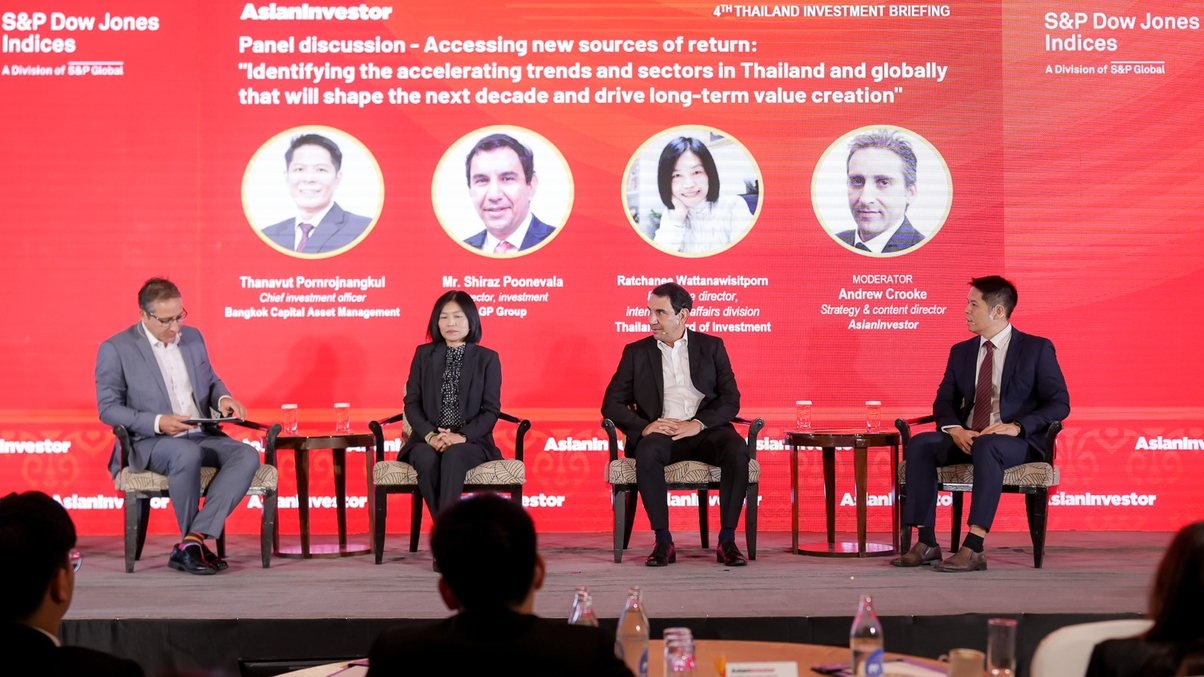Thai family offices assess liquidity, ESG amid market turmoil
The pros and cons of asset themes can be seen very differently, family office investors said at AsianInvestor's Thailand Investment Briefing in Bangkok.

Amid the current turbulence and talk of a downturn in global markets, investors are reassessing elements of their investment decisions such as portfolio liquidity and the influence of ESG-related factors.
Sign in to read on!
Registered users get 2 free articles in 30 days.
Subscribers have full unlimited access to AsianInvestor
Not signed up? New users get 2 free articles per month, plus a 7-day unlimited free trial.
¬ Haymarket Media Limited. All rights reserved.


